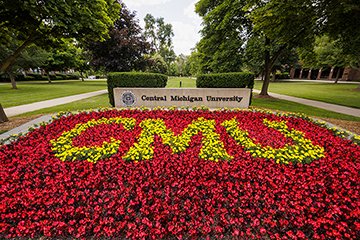Graduate student recognized by National Institutes of Health
Crespo hopes research unlocks secrets of autism
A Central Michigan University graduate student has been honored by the National Institutes of Health for his current work and his potential as a researcher.
Emmanuel Crespo received the NIH Outstanding Scholars in Neuroscience Award. Crespo is pursuing his doctorate in biochemistry, cell and molecular biology and conducts research in the College of Medicine’s Bioluminescent Optogenetics Lab. The lab’s principal investigator is Ute Hochgeschwender, M.D., CMU professor of neuroscience.
His research takes place along two tracks, building molecular tools and then applying them to study the brain.
One is the development of a bioluminescent tool that helps track neural activity. By attaching an enzyme similar to one found in fireflies to neurons, researchers can detect when neurons are firing. It’s like turning cells into lightbulbs, he said.
The goal of this research is to investigate the potential connection between neural stimulation during brain development and the development of autism spectrum disorder. Disruptions in brain activity are considered a possible cause of ASD, he said.
What Crespo said he’d like to learn is whether changes in neural stimulation can cause abnormal brain development. So far, it shows promise, he said.
His work is not terribly different from putting together a puzzle.
“My research is all about making pieces of a puzzle come together in different ways, painting a different picture every time,” he said. “Each time, with every puzzle I solve by creating new pieces, I can make brain cells do something they were never able to do before."
Crespo credits much of his success to Hochgeschwender’s mentorship.




